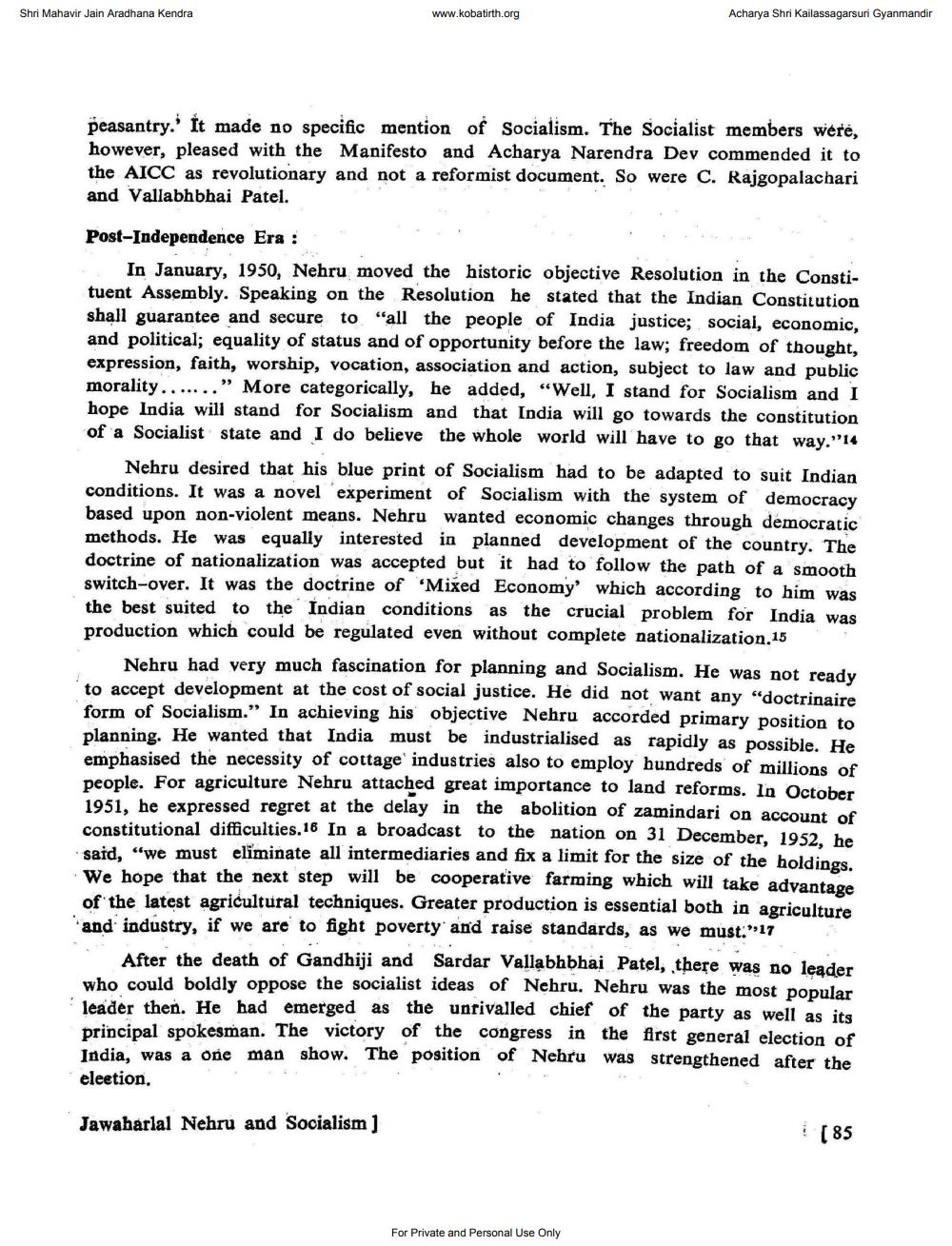________________
Shri Mahavir Jain Aradhana Kendra
www.kobatirth.org
Acharya Shri Kailassagarsuri Gyanmandir
peasantry.' It made no specific mention of Socialism. The Socialist members were, however, pleased with the Manifesto and Acharya Narendra Dev commended it to the AICC as revolutionary and not a reformist document. So were C. Rajgopalachari and Vallabhbhai Patel.
Post-Independence Era :
In January, 1950, Nehru moved the historic objective Resolution in the Constituent Assembly. Speaking on the Resolution he stated that the Indian Constitution shall guarantee and secure to “all the people of India justice; social, economic, and political; equality of status and of opportunity before the law; freedom of thought, expression, faith, worship, vocation, association and action, subject to law and public morality..... ..” More categorically, he added, “Well, I stand for Socialism and I hope India will stand for Socialism and that India will go towards the constitution of a Socialist state and I do believe the whole world will have to go that way."14
Nehru desired that his blue print of Socialism had to be adapted to suit Indian conditions. It was a novel experiment of Socialism with the system of democracy based upon non-violent means. Nehru wanted economic changes through democratic methods. He was equally interested in planned development of the country. The doctrine of nationalization was accepted but it had to follow the path of a smooth switch-over. It was the doctrine of 'Mixed Economy' which according to him was the best suited to the Indian conditions as the crucial problem for India was production which could be regulated even without complete nationalization.15
Nehru had very much fascination for planning and Socialism. He was not ready to accept development at the cost of social justice. He did not want any "doctrinaire form of Socialism." In achieving his objective Nehru accorded primary position to planning. He wanted that India must be industrialised as rapidly as possible. He emphasised the necessity of cottage industries also to employ hundreds of millions of people. For agriculture Nehru attached great importance to land reforms. In October 1951, he expressed regret at the delay in the abolition of zamindari on account of constitutional difficulties. 16 In a broadcast to the nation on 31 December, 1952. he said, "we must eliminate all intermediaries and fix a limit for the size of the holdings. We hope that the next step will be cooperative farming which will take advantage of the latest agricultural techniques. Greater production is essential both in agriculture and industry, if we are to fight poverty and raise standards, as we must."17
After the death of Gandhiji and Sardar Vallabhbhai Patel, there was no leader who could boldly oppose the socialist ideas of Nehru. Nehru was the most popular leader then. He had emerged as the unrivalled chief of the party as well as its principal spokesman. The victory of the congress in the first general election of India was a one man show. The position of Nehru was strengthened after the eleetion.
Jawaharlal Nehru and Socialism ]
[85
For Private and Personal Use Only




